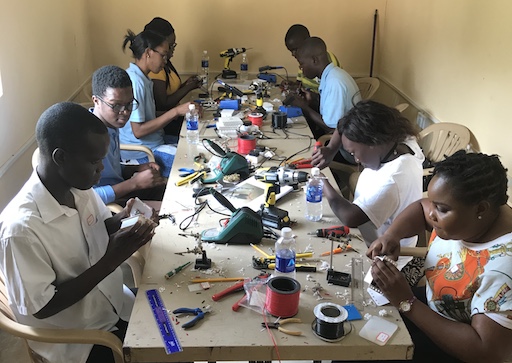
Farmers in Malawi are getting to grips with a new farming practice which combats soil erosion, doubles crop yields, increases income and strengthens communities, thanks to funding from the Halcrow Foundation.
The project began in November 2018 and is run by Tiyeni, a UK charity based in Northern Malawi that trains and supports farmers in a deep bed method of farming. Unlike Malawi’s traditional method of farming, which is widely regarded as being both labour intensive and environmentally unfriendly, deep bed farming improves drainage and helps protect soil and plants from extreme weather caused by climate change.
Preparing the land
So far, half the 280 farmers supported by the project have received tool packs and are preparing their land for crops. Pickaxes and hoes allow them to dig deep into the hard, compacted topsoil, and line levels ensure the land is flat and not prone to rapid runoff of rainfall which causes soil erosion.
Farmers are also taught to make Bokashi, a low-cost compost created from waste found in and around farms. This environmentally-friendly fertilizer has been found to improve soil fertility and crop production as effectively as artificial alternatives.
Strengthening communities
Tiyeni’s project promotes a highly sustainable method of farming. An increase in crops mean improved food security and profit from sales, which means more money to spend on education, healthcare and housing. Farmers are also encouraged to work together, sharing tools, knowledge and labour, so that communities are enriched and strengthened generations to come.
Learn more about our work with Tiyeni here.
About Tiyeni
Tiyeni formed in 2005. Its goal is to combat hunger and poverty throughout Malawi through soil and water conservation, and implementing rural farming methods that enable optimum food production from the land. For more information, visit www.tiyeni.org


